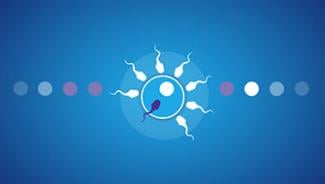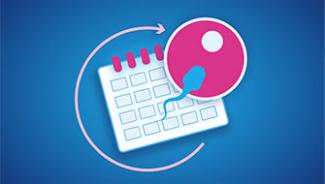Heart and pregnancy health: How to prepare as you’re trying to conceive

If you’re getting ready to start trying to conceive (TTC) and have a congenital heart defect, heart disease or high blood pressure, be sure to keep the conversation flowing with your healthcare provider, as you likely have some questions and concerns related to pregnancy. You may be wondering if you can get pregnant and, if you do get pregnant, what complications you and your baby might face. Here we share some conversation-starters for when you meet with your doctor.
In this article
- Is heart disease in pregnancy something I should worry about?
- Can a woman with a congenital heart defect get pregnant?
- Is high blood pressure during pregnancy something I should be concerned about?
- What is a normal heart rate for pregnant women?
- Understanding heart problems during pregnancy — and the signs you can look out for
- Related Articles
Is heart disease in pregnancy something I should worry about?
According to the American College of Obstetricians and Gynecologists (ACOG), every year more and more women are dealing with heart disease in pregnancy.1 Heart disease affects many women in the U.S. Disparities in outcomes exist among non-white and lower-income women.2 Higher risk factors include age (if you’re over 40), race or ethnicity (if you’re Black, American Indian or Alaskan Native), high blood pressure and obesity.1 Here’s the good news: Knowing these risk factors and understanding the warning signs while TTC can help you advocate for yourself when talking with your doctor.1
Can a woman with a congenital heart defect get pregnant?
Yes, a woman with a congenital heart defect can get pregnant, but they may experience more pregnancy-related complications. According to a study conducted by the Centers for Disease Control and Prevention (CDC), which looked at more than 26,000 women living with congenital heart defects in three areas of the U.S, nearly one in five women became pregnant over approximately three years.3
If you have a congenital heart defect and you’re TTC, you should talk to your healthcare provider, as you are at a higher risk for complications while pregnant compared to women without heart defects. Pregnancy-related issues may include anemia, blood loss and high blood pressure. Health issues can include diabetes, infectious disease and mental health issues. The CDC reiterates, though, that with appropriate medical care and treatment, a healthy pregnancy for those who have a heart defect is possible. Communication with your healthcare provider while TTC is key.3
It’s important to understand the difference between “congenital heart defect” and “heart disease.” “Congenital heart defect” refers to a heart abnormality that has existed since birth.4 “Cardiovascular disease,” also called “heart disease,” refers to a number of conditions related to atherosclerosis, in which plaque builds up in artery walls and blood clots can form, leading to heart attacks or stroke.5
Is high blood pressure during pregnancy something I should be concerned about?
If you’re TTC or pregnant and you have high blood pressure, some complications may arise during pregnancy. However, keep in mind that high blood pressure is preventable and treatable. It’s also common: In the U.S., one in every 12 to 17 pregnancies among women ages 20 to 44 involve high blood pressure.6 If you have high blood pressure and are TTC or pregnant, speak to your doctor about potential issues you may face and your options for navigating these issues.7
According to the CDC, if you’re TTC, your healthcare provider may give you further guidance in choosing healthy foods and share advice on how to maintain a healthy weight. You also may be prescribed medicine and, once pregnant, you may be instructed to use a home blood pressure monitor to keep track of your blood pressure at home.6
What is a normal heart rate for pregnant women?
According to Merck Manual, during pregnancy, cardiac output increases 30% to 50%, and the heart rate increases from about 70 beats per minute pre-pregnancy to as high as 90 beats per minute during pregnancy.8 As the fetus grows, your heart will pump more blood to the uterus. Your heart rate will change later during your pregnancy, during delivery, immediately after delivery and during the postpartum period as well.8
Could an increased heart rate indicate pregnancy?
While your heart rate will increase during pregnancy, an increased heart rate doesn’t necessarily indicate pregnancy. A home pregnancy test is a more accurate indicator of pregnancy.
Understanding heart problems during pregnancy — and the signs you can look out for
Knowing and understanding the signs of heart disease during pregnancy now will leave you better prepared for knowing what to do should those signs occur while you’re pregnant. The following are common warning signs of heart problems during or after pregnancy according to ACOG:
- Fainting or passing out
- Abnormal fatigue
- Feeling out of breath for no reason
- Experiencing palpitations
- Experiencing chest pain
- Severe swelling3
Regardless of whether you’re pregnant, if you experience any of these signs or symptoms, seek healthcare advice immediately.
Heart health is important, especially when preparing for getting pregnant and during pregnancy. If you have a congenital heart defect or heart disease, or if you are at risk, talk to your doctor. Together you can create an action plan to help keep you and your baby as healthy as possible.
Related Articles
Sources
- The American College of Obstetricians and Gynecologists. Heart disease and pregnancy. Accessed February 16, 2023.https://www.acog.org/womens-health/infographics/heart-disease-and-pregnancy
-
The American College of Obstetricians and Gynecologists. Practice bulletin No. 212: pregnancy and heart disease. Updated May 2019. Accessed February 16, 2023.https://www.acog.org/clinical/clinical-guidance/practice-bulletin/articles/2019/05/pregnancy-and-heart-disease
-
Centers for Disease Control and Prevention. Women with heart defects and pregnancy-related health issues. Updated January 24, 2022. Accessed February 16, 2023.https://www.cdc.gov/ncbddd/heartdefects/features/women-heart-defects-and-pregnancy.html
-
American Heart Association. About congenital heart defects. Updated May 14, 2018. Accessed February 16, 2023. https://www.heart.org/en/health-topics/congenital-heart-defects/about-congenital-heart-defects
-
American Heart Association. What is cardiovascular disease? Updated May 31, 2017. Accessed February 16, 2023.https://www.heart.org/en/health-topics/consumer-healthcare/what-is-cardiovascular-disease
-
Centers for Disease Control and Prevention. High blood pressure during pregnancy. Updated February 15, 2023. Accessed February 16, 2023.https://www.cdc.gov/bloodpressure/pregnancy.htm
-
March of Dimes. High blood pressure during pregnancy. Updated February 2019. Accessed February 16, 2023.https://www.marchofdimes.org/find-support/topics/pregnancy/high-blood-pressure-during-pregnancy
-
Artal-Mittelmark R, Merck Manual. Physical changes during pregnancy. Updated September 2022. Accessed February 16, 2023.https://www.merckmanuals.com/home/women-s-health-issues/normal-pregnancy/physical-changes-during-pregnancy

Get pregnant naturally
Ovulation tests are accurate and simple to use.

When is the best time to get pregnant?
There are only a few days each cycle, around ovulation, when a woman is fertile. Knowing these days can maximise your chance of conceiving.




